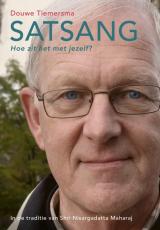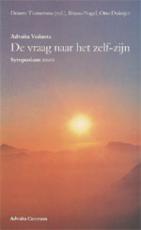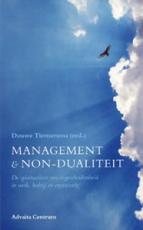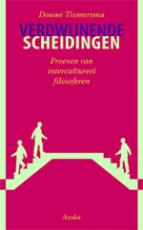Advaita Post Volume 14 No. 12
June 15, 2013
****
Text satsang
An Advaita talk with Douwe Tiemersma in Gouda,
February 2, 2005
It's hard to realize what it means to stay directly in
the openness
Today I fell
into conversation with people who are on a Buddhist path and was very struck by
something. It's good to discuss that here. In most Buddhist traditions you have
a sophisticated path containing several steps whereby the first step is very
long. Then all kinds of requirements are given for that. You must abide by all kinds
of rules; you have to deal with the vows of the Buddha, the Dharma, the Sangha.
These rules are continually stressed. When discussing these things it is said:
"Of course, these rules are not so important, it's just a help. What is
given at the beginning is different than what belongs to the teaching later on."
In the advaita approach you don't have this guidance, this support doesn't
exist. You have absolutely no mainstay. The only thing that applies is: the
essence of openness. Insofar as there is instruction, it calls upon this. You
have the notion: you are openness. How that expresses itself in practice is secondary.
There aren't all these rules, these guidelines. Only this one essence is there
as a guide: total openness. On the one hand it's wonderful that you don't have any
rules because it's obviously not about them. You aren't bound by particular
phases of instruction whereby you can always proceed one particular stage further.
Therefore, the direct approach is very attractive. On the other hand, it's hard
to realize what it means to directly stay in this openness, what it means that there
are absolutely no rules, that all forms actually disappear. All of you are in
this situation. Directly, it already requires an infinite confidence, an
infinite insight.
An advantage of rules and a disadvantage of Advaita, I
find that with Advaita you can bypass blind spots. For example, I can have certain
violent aspects. And I don't ever have to see them.
You think so?
I can project them outward for an incredibly long time,
I can go along with everything and then think that I'm very open.
You can always think
more.
When I follow the rules, like in the Buddhist
tradition, I really can have my nose to the grindstone.
What is it all about
here? Be attentive. Be clear in relation to yourself, your own situation,
constantly. It's always about that.
But that assumes that there's no such thing as a blind
spot, something that I can never see by myself.
Be clear, be
attentive. We're speaking about that, take a look. Every human being has a
certain awareness of themself, can look at themself more or less critically.
That's the point.
But if you're looking then you're back in a thought
process.
Looking isn't
thinking. If you are thinking about looking then that has nothing to do with
consciousness because then you are thinking. Can't you remain aware of yourself
while doing all kinds of things?
I wish I could. I wish that that little thinker would
stay still. I have absolutely no control over it.
Even when you
meditate? It could be necessary to do some Vipassana meditation for a while, so
that you actually bring the events of your mind into view. Always take a fresh
look: what happens there, what kind of impressions are all there, what kinds of
images arise. That's really necessary. With the advaita approach you can step
in anywhere, but precisely because it requires so much clarity, it seems to be difficult
for most people and possibly not such a suitable approach. The advaita path is suitable
when there's actually already a good amount of insight.
Would you say that the advaita path is so popular in
the West because it's easy to combine with ordinary life? When you follow a
Buddhist tradition it can require so much of you that it's very difficult to
combine with everyday life. Advaita doesn't ask anything more of me except
remaining open and that doesn't take any time.
There's also
another aspect to it. When it really concerns this breakthrough: that isn't bound
by the situation, not tied to conditions. You can say nothing about it beforehand.
It will just appear.
And afterwards?
Then you can
adduce all kinds of things about it if you want to. But that doesn't make any sense.
Basically you can't say anything about it. If you do that anyway, then you pin down
the cause; first this has to happen, then that will happen. A breakthrough just
happens. Some have a situation that is completely closed. And suddenly it breaks
open. For others it's very gradual and suddenly there is enlightenment. Nothing
can be said about it in advance. The only thing is: a sphere of clarity arises and
everything that still needs to be clarified, where initially blind spots were, becomes
clear so that there aren't any obstacles any longer.
And the openness will act?
Of course, the
only thing you can do is: stay as open as possible, as clear as possible, stay
awake. That's the only thing.
****
Er is geen tweeheid
als je ontspannen bent
in zelf-bewustzijn
is dat duidelijk.
Boeken
Douwe schreef en redigeerde gedurende zijn leven boeken. Via onze uitgeverij zijn deze nog verkrijgbaar.



